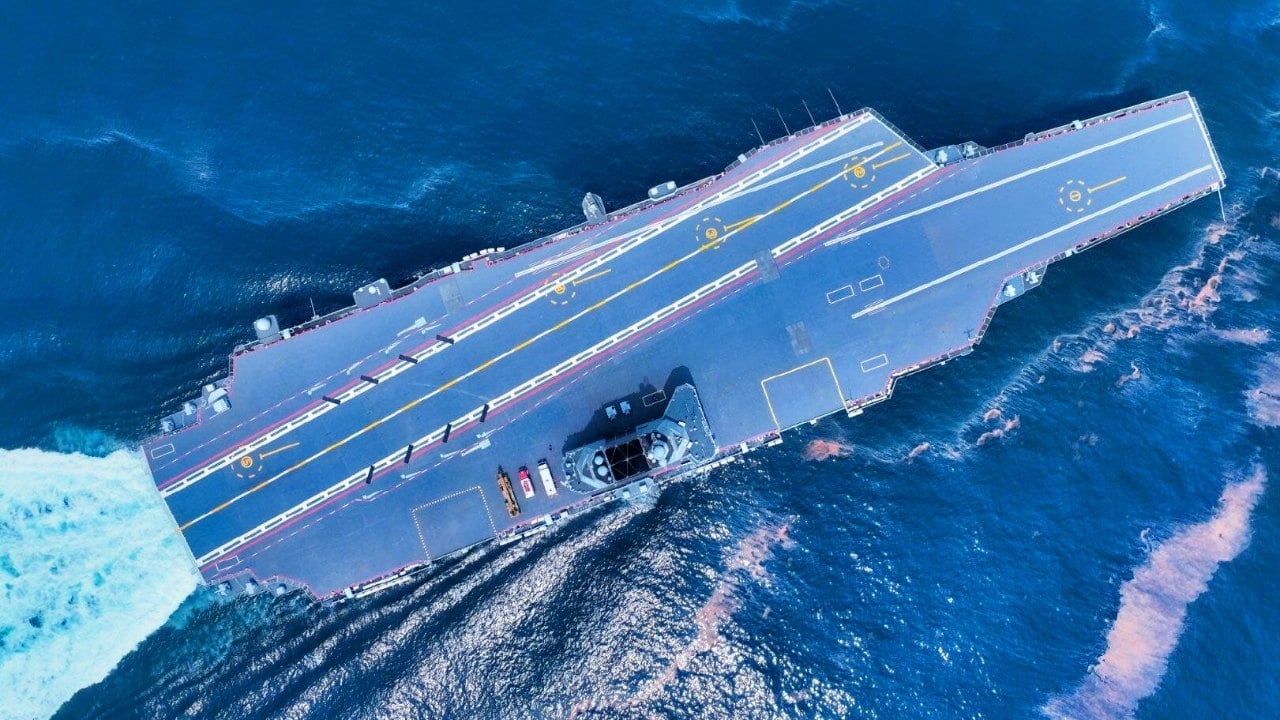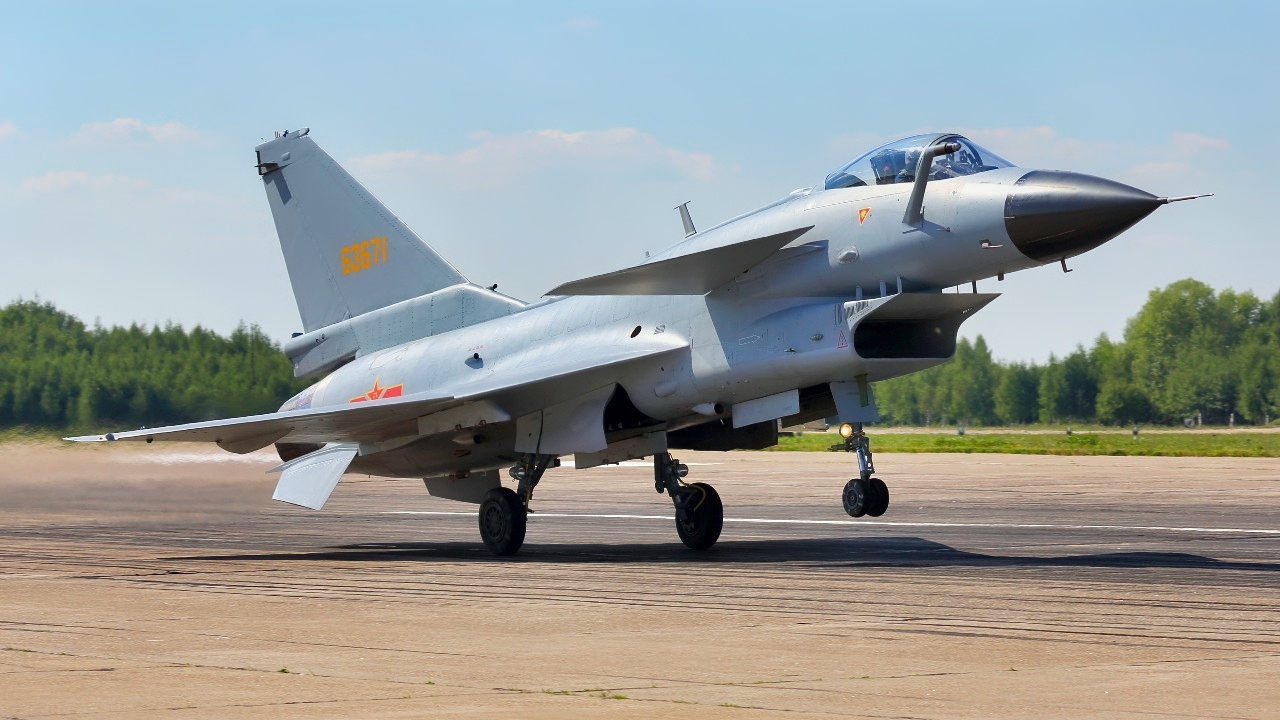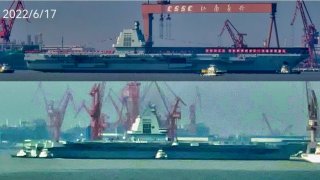The 1 Word Reason China Keeps Sailing Aircraft Carriers Near Taiwan
Taiwan is preparing for a potential Chinese blockade as Beijing ramps up military exercises near the island. Chinese aircraft carriers recently sailed through the Taiwan Strait, signaling serious intentions. Taiwanese Defense Minister Wellington Koo emphasized that a blockade would be an act of war, with far-reaching impacts on global trade.
Blockade: Taiwan is preparing for a potential Chinese blockade as Beijing ramps up military exercises near the island. Chinese aircraft carriers recently sailed through the Taiwan Strait, signaling serious intentions. Taiwanese Defense Minister Wellington Koo emphasized that a blockade would be an act of war, with far-reaching impacts on global trade.

-Analysts believe China might impose a slow-rolling blockade before considering an invasion, using cyberattacks, naval power, and advanced anti-access/area-denial (A2/AD) systems to isolate Taiwan. While U.S. intervention is uncertain, China's tactics echo historical precedents like the Cuban Missile Crisis, making a blockade likely in any future conflict.
Taiwan Prepares for Blockade as China Sails Aircraft Carriers Nearby
“A real Chinese blockade of Taiwan would be an act of war and have far-reaching consequences for international trade,” Defense Minister Wellington Koo told world press outlets in response to the massive Chinese military drills around the embattled island democracy.
The American publication Reuters, reports that China has, “over the past five years staged almost daily military activities around the island, including war games that have practiced blockades and attacks on ports.” But that description hardly does what the Taiwanese are struggling with from their not-so-friendly neighbor of China.
In fact, for at least the last five years, China’s military has subjected the tiny island to a series of increasing provocations, attacks in all but name, designed to lower the Taiwanese resistance quotient and cause uncertainty and chaos, all as China ramps up its military capabilities.
Most of China’s defense posture is predicated upon the singular goal of capturing Taiwan, overthrowing its democratically elected government, and absorbing it into China’s growing co-prosperity sphere.
The Drills
Earlier this week, China conducted major naval and air drills right off the coast of Taiwan. These drills prompted Taiwanese Defense Minister Koo’s stark comments. More dangerously, though, were the attacks that could not be seen from the naked eye. Since June of this year, Chinese cyberattacks have multiplied considerably in conjunction with the increase in overall Chinese pressure upon the tiny island.

Reports indicate that Taiwanese organizations were subjected to record levels of Chinese cyberattacks coinciding with this most recent Chinese wargame off the coast of Taiwan.
These cyberattacks, when Beijing decides to go after Taiwan fully, will be utterly devastating to the island. They will serve to isolate the island further electronically, while Chinese naval and air units isolate Taiwan from the world physically.
As part of the exercises, China sailed their increasingly sophisticated aircraft carriers through the Taiwan Strait. This is an act of serious brinkmanship. These carriers will be key for any blockade and eventual invasion of China.
And, to be clear, the reason that the Taiwanese defense minister is specifically commenting on the prospects of a Chinese blockade of the island is because, based on the assessments of analysts like myself and others, we assess that a blockade is the most likely event to occur whenever China decides to attack Taiwan.
Chinese Blockade, or Quarantine, Coming Soon
Writing over at the Asia Times, Denny Roy of the East-West Center in Honolulu, Hawaii, analyzed that a “blockade [of Taiwan] eschews the win-loss invasion risk while keeping U.S. rules-of-engagement limbo for months or years while strangling the island into submission.” Indeed, this last summer I served as the China team lead in the Heritage Foundation’s Election Integrity simulation.
Based on my reading of the situation, we assessed that China would attempt a slow-rolling blockade of the island before thinking of any invasion. A blockade would squeeze the island, keep the Americans and their allies back, and buy China time to engage in the slow kill.
What’s more, irrespective of what the Taiwanese government says about the matter, what’s important is how Washington will respond to a blockade scenario. It will not trigger the kind of swift military response that Taipei believes it will. Even though, yes, under international law a blockade is an act of war.
Then again, the Americans themselves set the precedent for avoiding such legal complications when President John F. Kennedy blockaded the island of Cuba to prevent more Soviet nuclear weapons from reaching Cuba. Washington called it a “quarantine” rather than a blockade and that bought Washington the diplomatic wiggle room it needed.
Replicating American Strategies for Success
Beijing can be expected to do the same thing. China will be successful in staving off the kind of direct military engagement they fear from the United States under these conditions, especially considering how the U.S. defense industrial base is at its breaking point.
Anyway, China’s recent sailing of aircraft carriers through the Taiwan Strait during what was a serious wargame exercise indicates the severity of the situation that Taiwan finds itself in. China is going to attack. They will likely blockade Taiwan, using their growing naval capabilities, and run roughshod over the island, deploying a comprehensive suite of electronic warfare (EW) methods, cyberattacks, and possibly counter-space attacks.
Carriers are not the Centerpiece of China’s Fleet.
As I have written in these pages previously, unlike the U.S. Navy's surface warfare fleet, China does not make aircraft carriers the center of its naval operations. They are truly support ships. That might change as China’s capabilities continue increasing. For now, though, the fact that China does not have as many or as complex carriers as does the United States is irrelevant to the discussion.
They have enough to operate near Taiwan.
Plus, China plans to shield its carriers, and other surface warships, with their advanced, comprehensive anti-access/area-denial (A2/AD) systems arrayed throughout the region. All this is to say that China’s recent boldness is the shape of things to come. And what is to come is the greatest blockade in history.
About the Author
Brandon J. Weichert, a National Interest national security analyst, is a former Congressional staffer and geopolitical analyst who is a contributor at The Washington Times, the Asia Times, and The-Pipeline. He is the author of Winning Space: How America Remains a Superpower, Biohacked: China’s Race to Control Life, and The Shadow War: Iran’s Quest for Supremacy. His next book, A Disaster of Our Own Making: How the West Lost Ukraine, is due October 22 from Encounter Books. Weichert can be followed via Twitter @WeTheBrandon.
All images on the page come from Shutterstock or Creative Commons.
From the Vault
Russia Freaked Out: Why the U.S. Navy 'Unretired' the Iowa-Class Battleships
Battleship vs. Battlecruiser: Iowa-Class vs. Russia's Kirov-Class (Who Wins?)


